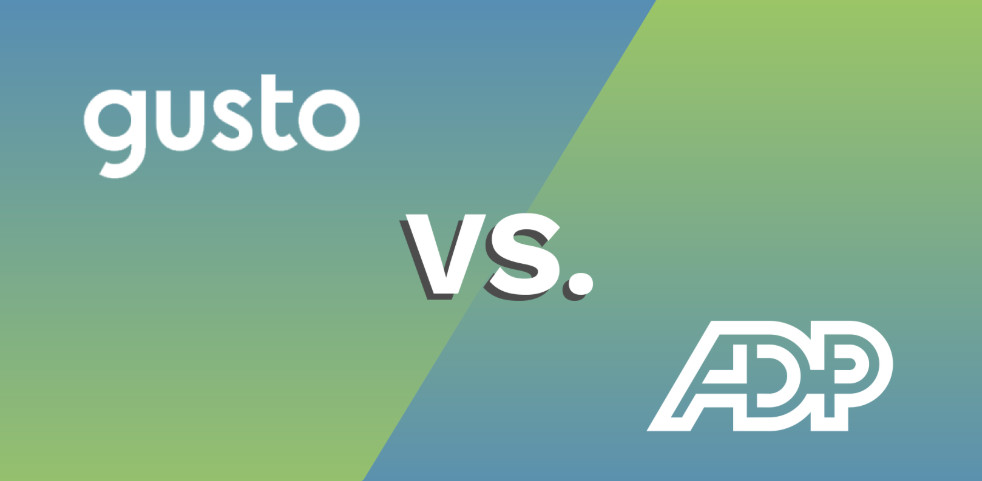Gusto vs ADP: Payroll & HR Comparison for Businesses

When comparing Gusto and ADP, it’s important to understand that both offer robust payroll services, but they cater to different business needs and scales. Below is a detailed breakdown of how these two providers compare across various dimensions.
Overview of Gusto and ADP
Gusto and ADP both provide full-service payroll solutions, but they differ in terms of features, flexibility, and pricing transparency. ADP is a long-established payroll processing company, while Gusto is a modern solution designed for small businesses.
Key Similarities
Full-service payroll with tax filing
Direct deposit features
Compliance management tools
Key Differences
ADP offers a broader range of services beyond payroll
Gusto emphasizes simplicity and transparency for small businesses
Streamline your payroll process today—choose the platform that fits your team’s needs and scale with confidence!
Target Market and Business Model
Both companies serve the payroll and HR needs of businesses, but they do so in different ways depending on the business size and service expectations.
Gusto’s Approach
Tailored for small businesses
Self-service software platform
Transparent and standardized pricing
ADP’s Approach
Caters to all business sizes, including enterprises
Service-driven model with sales reps and custom packages
Pricing is not published online; quotes are required
Pricing Transparency and Cost Differences
One of the most noticeable contrasts between Gusto and ADP lies in how they handle pricing.
Gusto Pricing
Published rates on the website
No hidden fees for year-end forms or HR tools
Generally more affordable for small businesses
ADP Pricing
Custom quotes based on business needs
May include setup fees, per-payroll-run charges, and add-on fees
Often more expensive than Gusto for comparable services
Feature Comparison
Both platforms are rich in features, but ADP goes much further with advanced capabilities often required by larger businesses.
Gusto Features (Included in Basic/Mid Plans)
Onboarding checklists
Organizational charts
Simple time tracking (in Plus plan)
Health insurance administration (in covered states)
ADP Features (Many Are Paid Add-ons)
Advanced time tracking hardware
Job costing and garnishment handling
Full retirement and insurance options
Time and attendance module (extra fee)
Broker services for benefits (with additional service costs)
Strengths and Scalability
While Gusto focuses on ease of use, ADP is designed for scalability and long-term HR support.
ADP Strengths
Scalable from small businesses to large enterprises
Transition paths: ADP RUN → ADP Workforce Now → ADP Vantage
Advanced services like recruiting, talent management, and workforce management
Can support multi-state and international payroll
Offers unique services like payroll debit cards and check delivery
Customer Support Experience
Customer support models differ significantly, reflecting each provider’s approach to client service.
ADP Customer Support
24/7 support via phone and chat
Dedicated account contacts or local reps
Helpful for off-hours payroll issues
Gusto Customer Support
Excellent quality but not 24/7
More modern and online-based support experience
Avoids the sales-driven model used by ADP
Ease of Use and User Experience
The user interface and system design can impact daily operations significantly, especially for small businesses.
Gusto Interface
Modern and user-friendly
Designed for self-service and online use
ADP Interface
Improved over time but can feel cluttered
Some complex tasks handled by ADP service team
May seem “old school” but provides hands-on accuracy
Pricing Comparison Summary
For businesses watching their budget, Gusto is often the better deal due to its inclusive pricing model.
Gusto Cost Advantages
All-inclusive pricing for payroll and year-end tax forms
No setup fees or charges for W-2s and 1099s
ADP Cost Structure
Custom quotes often lead to higher costs
Charges for W-2/1099 processing (e.g., ~$60 for 10 forms)
More likely to have a la carte pricing model (similar to Paychex)
Best Fit by Business Type
Depending on the size and complexity of your business, one provider may be a better match than the other.
Gusto Is Best For
Small businesses with straightforward payroll needs
Companies seeking an all-in-one solution at predictable costs
ADP Is Best For
Larger companies or rapidly scaling businesses
Organizations needing advanced reporting, union payroll, or compliance support
Businesses that value a well-established provider
Conclusion
In conclusion, the choice between Gusto and ADP comes down to your business’s size, complexity, and preference for service style.
Summary:
Gusto: Simple, transparent, cost-effective—ideal for small businesses.
ADP: Scalable, robust, and feature-rich—ideal for growing or large enterprises with complex needs.
